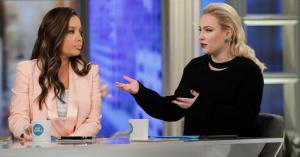The results of a new COVID-19 antibody study are causing a controversy in the field of epidemiology, as science continues to try and catch up with the coronavirus pandemic. Researchers at Stanford University conducted blood tests on volunteers from Santa Clara County, California, according to a report by Wired, trying to gather more data on the infection rate of COVID-19 in the population. Rather than the traditional, rigorous peer-review process, this study is being debated publicly online.
The Stanford researchers reportedly found their willing test subjects through Facebook, and gathered blood samples in parking lots while trying to maintain social distancing. The volunteers allowed scientists to prick their fingers through their car windows. The blood was tested for antibodies against COVID-19, also known as indirect testing — as opposed to direct testing, where a nose or throat sample is tested for viral RNA. The antibody testing is useful for finding those who may be asymptomatic carriers of COVID-19, or who may have already recovered.
Videos by PopCulture.com
A rapid, unsolicited peer review on emerging serosurvey data from Santa Clara County, and why I remain skeptical of claims that we are identifying only 1 out of every 50 to 85 confirmed cases.
— Natalie E. Dean, PhD (@nataliexdean) April 18, 2020
The researchers found that between 2.5 and 4.2 percent of Santa Clara County’s residents were infected with COVID-19. This is significantly higher than previously believed and has huge implications for the response to the virus going forward. However, it also raises questions about how closely to follow scientific procedure during a global crisis.
Researchers have been trying to conduct more antibody testing all over the country to better understand the virus, and get a clearer idea of how immunity to COVID-19 might work. This Stanford study included about 3,000 subjects, and the results were posted online on Friday. Since then, scientists have been openly discussing and speculating about the findings on social media platforms like Twitter, rather than the typical process of publishing arguments in scientific journals.
“A rapid, unsolicited peer review on emerging serosurvey data from Santa Clara County, and why I remain skeptical of claims that we are identifying only 1 out of every 50 to 85 confirmed cases,” tweeted one University of Florida professor as the results began getting coverage.
Other scientific conventions have already fallen by the wayside as a result of this pandemic. According to a report by Five Thirty-Eight, the FDA has been allowing laboratory companies to put antibody tests into use without getting prior approval — a process that previously took years of trials and research. This has caused a boom in the industry, with 98 different kinds of tests now available.
While all these resources are undoubtedly much-needed for this crisis, it is causing some experts to be dubious of results from unfamiliar sources. The process of getting a a new practice approved by the scientific community might just be the latest thing to be completely changed by the coronavirus pandemic.









